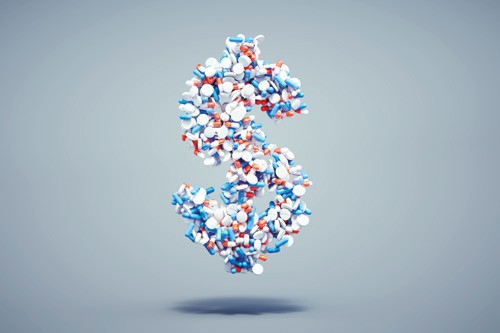
Drug pricing and reimbursement remains at the forefront of pharma executive minds as 2019 gets underway, according to a new industry survey.
The GlobalData poll suggests more than half (51%) of industry respondents think that pricing will have the greatest negative impact on the sector this year. Pharma companies still seem to be chancing their luck however, with more than three dozen welcoming in the New Year with price hikes on around 250 medicines, according to a Reuters report.
The number of increases is down from 400 a year ago, according to data provider Rx Savings Solutions, but still fly in the face of pressure from US president Donald Trump to forego price hikes as part of a drive to lower the overall cost of medicines.
They also come after some prominent drugmakers such as Pfizer and Novartis agreed to a temporary freeze in 2018 – but only to the end of the year – and Rx Savings Solutions’ chief executive Michael Rea has suggested to Bloomberg that some companies may simply be delaying increases to avoid the start-of-year scrutiny. One such company is Purdue Pharma, which announced its price increases on 2 January.
Unphased by the data, Trump told a cabinet meeting this week that “you’re going to see a tremendous reduction in drug prices” this year, adding that the Department of Health & Human Services is “almost ready to make that big final push” on the issue.
The average price increase this year was about 6.3% and includes branded as well as generic drugs, according to GlobalData, which notes that “both democrats and republicans have reacted strongly to these latest increases and it could be an opportunity for bipartisanship to bring the cost of prescription drugs down.”
That is borne out by another poll by Politico/Harvard poll which finds that a majority of lawmakers across both parties believe lowering drug prices should be the top priority for Congress this year. With 90% of democrats and 82% of republicans saying this is “extremely important.”
A big part of Trump’s plan for price reductions is a proposal to tie reimbursement rates for physician-administered drugs under Medicare Part B to lower rates in other countries, which had generated thousands comments by the end of the consultation period on 31 December, many of which seeming to reject that they call “socialist” price controls.
The move is being resisted fiercely by industry bodies including PhRMA, which says in its comments that it would “lead to significant barriers and delays in patient access to clinically important treatments” and “chill continued biopharmaceutical progress at a time of significant scientific promise”.
It points out that almost 90% of all medicines launched since 2011 are available in the US, compared to just 48% across the 14 countries proposed as reference markets in the plan. Patients also have to wait on average 16 months longer in these countries for new drugs, according to PhRMA.
“Companies will need to adopt more flexible pricing strategies to maximise return on investment and negotiate earlier with payers – as early as phase 2,” says GlobalData. “Conversations with payers will also be a lot tougher and go beyond price to demonstration of value to specific patient sub-populations.”
GlobalData’s poll also find that while Brexit and political uncertainty in the US were big stories in 2018, respondents viewed them as a “distant second” to drug pricing with just 11% apiece suggesting they would have the biggest impact on the sector this year.
Views were mixed on other factors that would have the greatest positive impact, with the rise of China as a competitor, vertical integration and patent expiry of biologics all expected to have an equal impact at 20% each.




